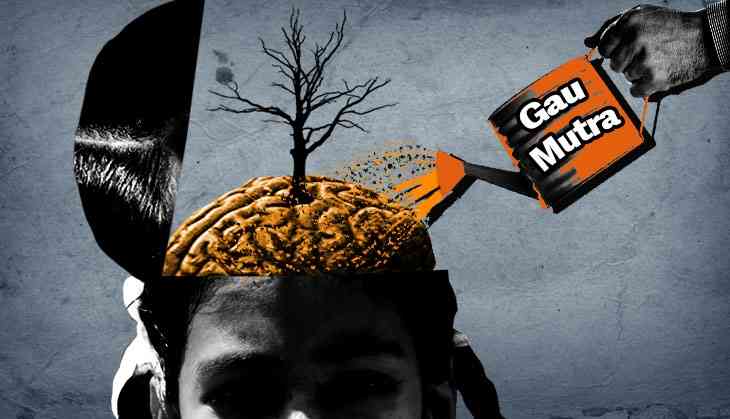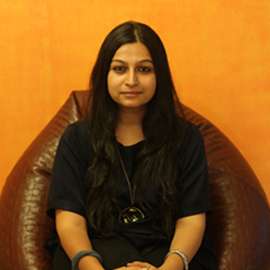Turkey's ban on teaching the theory of evolution and its parallels in India

Evolution is both a scientific fact and a theory - that species change and evolve over a period of time forms the very bedrock of biology. Over the years, there have been repeated attempts to tear down the real science behind Darwin's hypothesis, but those arguments never hold up.
What is truly surprising is that today, in the 21st century, people still ferociously put down evolution as "just a theory" and disregard it as a flat out lie. Thanks to such views, children in various parts of the world are being denied a proper education, Turkey being a case in point.
Turkey, which has been regressing into a conservative country under the guidance of President Recep Tayyip Erdogan, has decided to stop teaching evolution in schools, opting instead for a simpler, "values-based" education system.
A chapter in the previous curriculum, called "Origin of Life and Evolution", has been excluded for being a "controversial subject. To justify this decision, Education Minister Ismet Yilmaz told reporters: "It's a theory that requires a higher philosophical understanding than schoolchildren have."
Eroding secularism
The move has understandably sent alarm bells ringing, not just for parents of children readying themselves to go to school, but also for other nations that have respected the secular nature of Turkey for much of the 20th century.
"The last crumbs of secular scientific education have been removed," lamented Feray Aytekin Aydogan, the head of a secular-teachers union, to the New York Times.
As Erdogan continues to keep distancing himself from the secular strides made by Mustafa Kemal Ataturk, it isn't just science that is suffering.
Thousands of journalists and political opponents have been detained ever since the fateful 31 October day in 2016, when under the guise of an emergency following a failed coup attempt, Erdogan began consolidating power and silencing all critics to continue edging towards his ultimate goal of passing a constitutional referendum that would grant him unparalleled executive powers.
Turkey’s main opposition - Republican People’s Party (CHP) - has said that the decision will “condemn the Turkish public to darkness.”
The rise of nationalism
One would have imagined that as the world marched towards modern times, science would be accepted as the driving force behind creating a more secular and liberal world.
But this is not the reality we live in today. From Turkey to India, even Iran and Algeria, largely secular governments have been toppled to pave the way for religious nationalistic governments.
India's first prime minister, Jawaharlal Nehru, championed secular and scientific ideals, as did Atatürk. Both strived to make evolutionary biology a central part of the education system.
But as the global march of secularism has failed, science has become collateral damage.
The India parallel
In India, the situation may not look so dire just yet, but it's clear that the Narendra Modi-led BJP government is pushing its saffron agenda by bringing about its own textbook revolution.
In fact, many have taken to comparing this government with the early years of Erdogan when he began his attempts to create an ideological shift in the country.
There is no better way of making such a change happen than to rewrite textbooks within the school curriculum. This methodology forms the very backbone of Aldous Huxley's Brave New World where children are genetically engineered in bottles and taught exactly what the state wishes them to learn - right from duties to prejudices and even morals.
It is the consequences of such control - the loss of dignity, morals, values, and emotions and humanity - that evoke such a sense of horror among readers.
Foremost in the new battle India faces is Rashtriya Swayamsevak Sangh (RSS) activist Dinanath Batra, whose main claim to fame has been managing to have Wendy Doniger's book The Hindus pulped.
In Batra's book, which is now mandatory for children in Gujarat's schools, he wrote of how stem cell was an Indian invention - as proven by the birth of the100 Kauravas in the Mahabharata.
Months after coming to power in 2014, Prime Minister Modi pulled a leaf out of Dinanath Batra's book to prove the advanced state of Hindu thought by speaking of ancient genetic science and of how Ganesha was the first being on whom plastic surgery was practiced.
Turkey itself isn't far behind in making wild assertions: just this month, an article written by Tolgay Demir, a youth leader of Turkey’s ruling Justice and Development Party (AKP) titled “The Flat Earth Theory" where he seriously argued that the Earth is, in fact, flat.
According to him, photos of Earth taken from space are “staged,” and that the voyage to the moon by the US was nothing but a “conspiracy” to help people become "slaves of the capitalist system".
Holy cow
Pseudo science has become a part and parcel of mainstream politics in India. BJP leaders have begun expounding the benefits of drinking gau mutra, or cow urine. As BJP MP Shankarbhai Vegad from Gujarat told the Rajya Sabha in March 2015: “Cow dung and urine can cure cancer. I am witness to it. Cow dung and urine are a 100% cure for cancer.”
In fact in January, Rajasthan’s Education Minister Vasudev Devnani went far enough to claim that the cow is the only animal in existence which takes in oxygen and releases the same. Ridiculously, he added that there was no need to understand "the scientific significance of the animal".
What's more, beyond the politics of eating cows and the numerous lynchings taking place across India, the government's push to validate the benefits of ‘panchagavya’, a concoction of five cow-based derivatives (cow dung, cow urine, milk, curd and ghee) is now taking shape under the SVAROP (an acronym for Scientific Validation And Research On Panchgavya) programme.
An awakening
The Indian community of scientists has begun to make noises against such unscientific beliefs and superstitions. In a rare show of strength on 9 August, around 12,000 scientists took part in a march organised by the Breakthrough Science Society (BSS) in 40 cities across India.
Their demands? That government funding towards scientific research and development be hiked to 3% of the gross domestic product (GDP) from the current 0.85% and that the "propagation of unscientific, obscurantist ideas and religious intolerance" be brought to an end.
All this comes at a time when organisation involved in scientific research are facing a severe fund crunch.
"The problem is that there is propagation of unscientific views and superstitions, sometimes that is even getting support from the governmental quarters," Soumitro Banerjee, a professor at the Indian Institute of Science Education and Research (IISER), Kolkata, told Quint.
The march was taken out despite fears within the scientific community that they would be seen as taking part in "anti-government activities".
As one scientist from IIT-Delhi who took part in the march told Catch, "In light of Gauri Lankesh's murder in Bangalore just recently and those of anti-superstition activist Narendra Dabholkar, writer Govind Pansare and academic MM Kalburgi, speaking out against such pseudo science seems all that much more difficult."
The cost of pseudo science
When it comes to scientific education, Turkey's children will be bereft of the understanding of just why life evolves - leaving future generations of scientists forever affected for the worse.
In India, it appears that the ruling party has similar ideas to help keep students in the dark. After all, history has proven time and again that no tyrant has ever benefitted from an educated electorate.
Perhaps natural selection is the only answer.
First published: 20 September 2017, 15:45 IST

